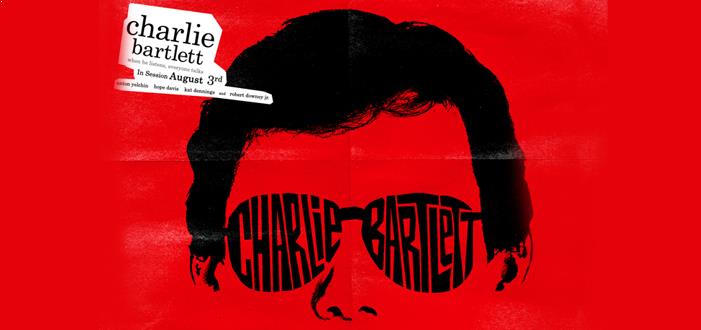
Charlie Bartlett
The significance of popularity during adolescence is something that is a permanent topic in film. This is primarily because with the arrival of sexual maturation, and hence forth sexual selective pressures, the natural disposition toward hierarchy is felt for the first time amongst individuals. And in an environment laden and saturated with first-timers, there ostensibly is a mad dash to the top. What is the most significant status or marker of upper echelon social standing than recognition?
High schools all over the country face the same exact race. It is quite astonishing and baffling at the same time, principally because the teens do not recognize that the significance acquired from name-recognition alone, versus say achievement in the world, does not translate to anything tangible to normal society. the effort they put into appearing popular is ephemeral, and will dissolve over time like celluloid.
It is quite generic to create a character such as Charlie Bartlett who is an over-achiever, yet places the emphasis on his life in becoming “popular”. It is implied that this is the main reason he is expelled at all the schools he attends. He is willing to achieve fame by any means, including selling illegal driver’s licenses. This is a fascinating and frightful examination of the outright pressure to conform to a standard of fame – it is easy to imagine his talent being applied elsewhere, such as towards medical research and development, or toward the creative arts.
Films such as these treat high school society as the center stage of every member. Academic work – really work in general – is ignored. In this film, it is ignored worse than most. It is practically a non-existent force in the society, despite the fact that the student’s relation to it is a strong determinant of his future success in society. Thus we observe a solipsistic culture in high school. Its virtues are not connected with the world.
Charlie struggles with taking care of his mother like an adult, yet still experiences the childish impulse to desperately be popular. This is a fatal contradiction to the character. Being faced with the challenges of reality often dispossesses an individual from the solipsism of the adolescent. Thus his antics at achieving fame are quizzical at the very least. I.e. why does he care what children think is good? Even more bizarre is the admission by his mother that with his father out of the picture, Charlie was not allowed to be a child. It appears as though he was fulfilling childish desires fully.
Grade: C-

